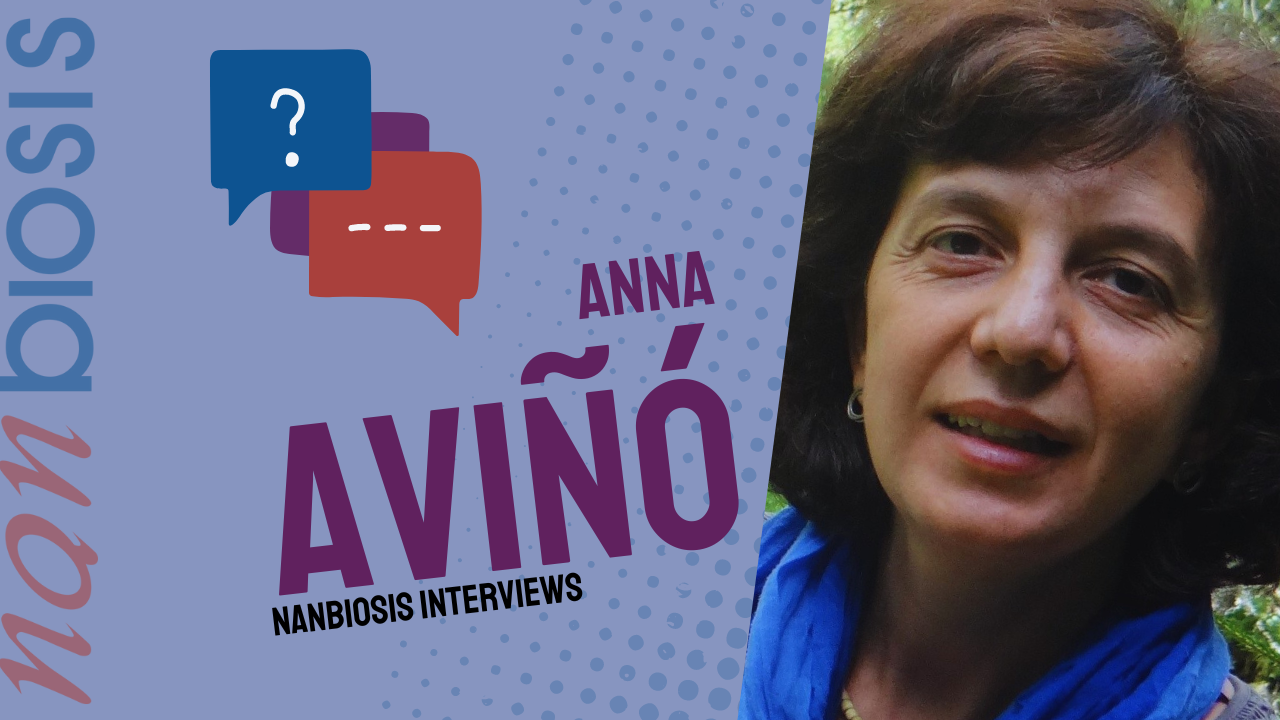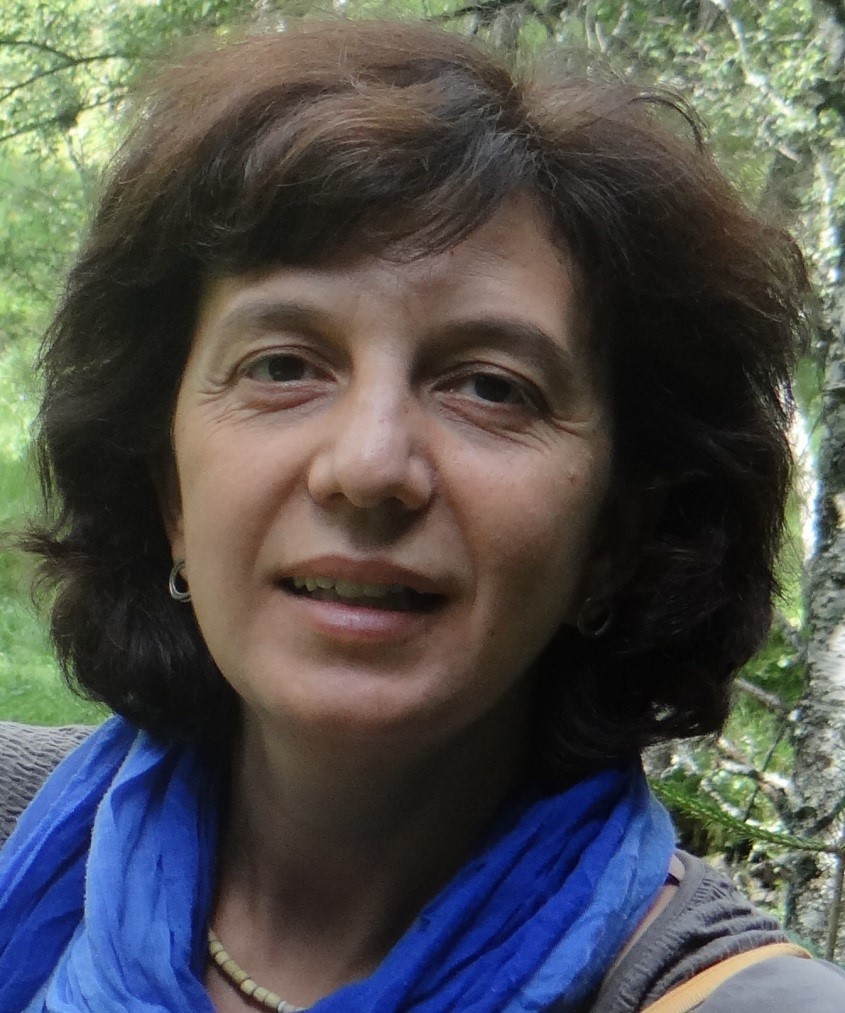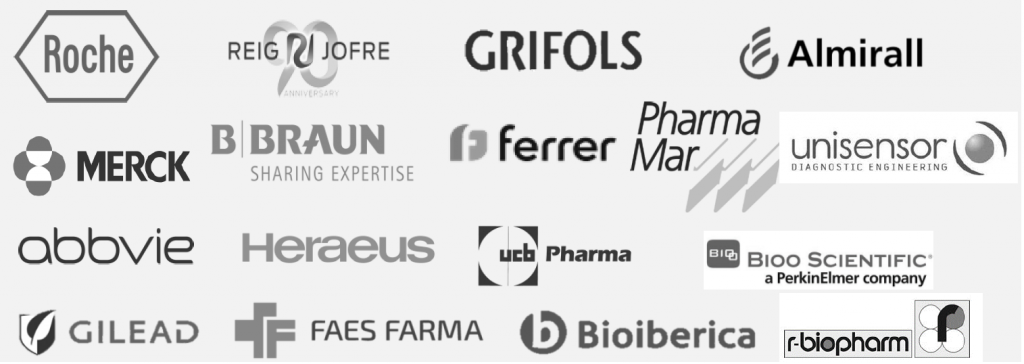
Anna Aviñó speaks about her journey as a researcher and her captivating oligonucleotides.
This is part of a series of interviews to several female researchers within the context of International Day of Women and Girls in Science 2024 and Woman’s Day 2024. For more interviews, visit our news section here.
February 2024, IQAC-CSIC/CIBER-BBN, Barcelona (Spain)
Could you share with us a bit about your research area and the projects you are currently working on?
I am a chemist specializing in nucleic acid chemistry. These compounds are wonderful, I would say unique; not only do they contain genetic information, but they are also involved in countless biological processes. My focus lies in synthetic and structural studies of small nucleic acids, known as oligonucleotides.
And these compounds, what are they used for?
Oligonucleotides can adopt different structures, including canonical duplexes as well as other secondary structures like quadruplexes and triplexes, the latter being particularly important in many diseases. I apply my chemical knowledge to generate and evaluate therapeutic oligonucleotides (such as antisense, siRNA, aptamers). Furthermore, oligonucleotides are so versatile that I also use them as recognition elements in various biosensors to detect pathogens, disease-related genes, etc.

“Oligonucleotides (…) are recently being approved as new advanced gene therapies for many diseases, including rare and cardiovascular diseases.“
—Dr. Anna Aviñó, scientific coordinator of Unit 29.
What motivated you to choose a career as a researcher? What have been the biggest challenges you have faced as a woman scientist?
I wanted to understand what things are made of, how medicines are made… I am currently 55 years old with a long scientific career, but it has never been easy to balance top-level research with family life. I have to thank CIBER as it’s the longest contract I’ve had, but I also have to say that I haven’t had opportunities for career advancement within it.
Have you experienced any kind of gender bias or added difficulty in your scientific career? How have you addressed this situation?
I haven’t faced any added difficulty per se, but the reality is that in my research center, the principal investigators are predominantly women with few family responsibilities.
How do you think gender stereotypes in the scientific field can be overcome? And what advice would you give to young women considering a career in science?
I think that stereotypes can be overcome by promoting unbiased education in schools regardless of the field of study. I would definitely encourage young women and advise them not to be afraid to pursue positions of responsibility.
What do you consider to be your greatest achievement or contribution in your field?
The oligonucleotides, which are my area of study as I mentioned, are recently being approved as new advanced gene therapies for many diseases, including rare and cardiovascular diseases. I can say that I can synthesize drugs in my laboratory, and furthermore, I believe I am the person who has conducted the most synthesis of these products in Spain!
What support have you received throughout your career that has been particularly helpful?
As I mentioned, thanks to CIBER, I continue to be a researcher. However, I am currently in a delicate situation because my principal investigator is retiring, and I don’t know how my scientific career will continue.
What changes would you like to see in the scientific world to promote gender equality? How do you think we can encourage more women and girls to participate in science?
The scientific world is not particularly biased in terms of gender equality. However, leadership positions tend to be held by men, even though more women are starting careers in research. Regarding encouraging more women, as I mentioned, education. Education is the key.
For more interviews like this, visit our news section here.
Additional information:
The goal of NANBIOSIS is to provide comprehensive and integrated advanced solutions for companies and research institutions in biomedical applications. All of this is done through a single-entry point, involving the design and production of biomaterials, nanomaterials, and their nanoconjugates. This includes their characterization from physical-chemical, functional, toxicological, and biological perspectives (preclinical validation).
In order to access our biomedical Solutions, apply here.
NANBIOSIS has worked with pharmaceutical companies of all sizes in the areas of drug delivery, biomaterials and regenerative medicine. Here are a few of them:









